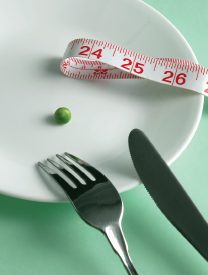In 2015, research by the U.S. Centers for Disease Control and Prevention found that over one-third of adults in the United States are obese.While the fad diets have grown to a multi-billion dollar industry, statistics show that Americans are gaining weight at a rapidly increasing speed each  year.
year.
So why are 78 million Americans obese? With all the exponential diet options, magic pills, powders, supplements, recipes, advice and theories out there, perhaps we just have too many options. We are so confused about what to eat, why we eat it and how much we should be eating that we take advice from unreliable sources and try fad diets for a quick fix.
Allen Knehans, PhD, department chair of nutritional services at Oklahoma University, tells us there is no standard definition of a fad diet. He advised that “the reality of weight loss is that, in the long run, a slow and steady approach brings more lasting results than any quick weight-loss fad.”
Whether you are suffering from obesity or just want to lose a few pounds, consider meeting with a registered dietitian (RD)
to discuss a diet plan. RD’s are master’s level experts who are trained to guide you to a healthy, long-term weight loss. But before you accept a diet plan, make sure your RD has the proper credentials. You can find a list of RD’s for your area at www.eatright.org.
Helpful red flags to identify and avoid dangerous fad diets:
- The fad diet involves crash dieting, or intense reductions in eating and drinking.
- The diet promises that you will lose weight fast or at an unrealistic pace.
- Statements made about the diet are refuted by reputable scientific organizations.
- The diet refers to foods as “good” or “bad.”
- Personal testimonials are used to “sell” the diet.
- The diet’s recommendations are based on a single study or are without research.





